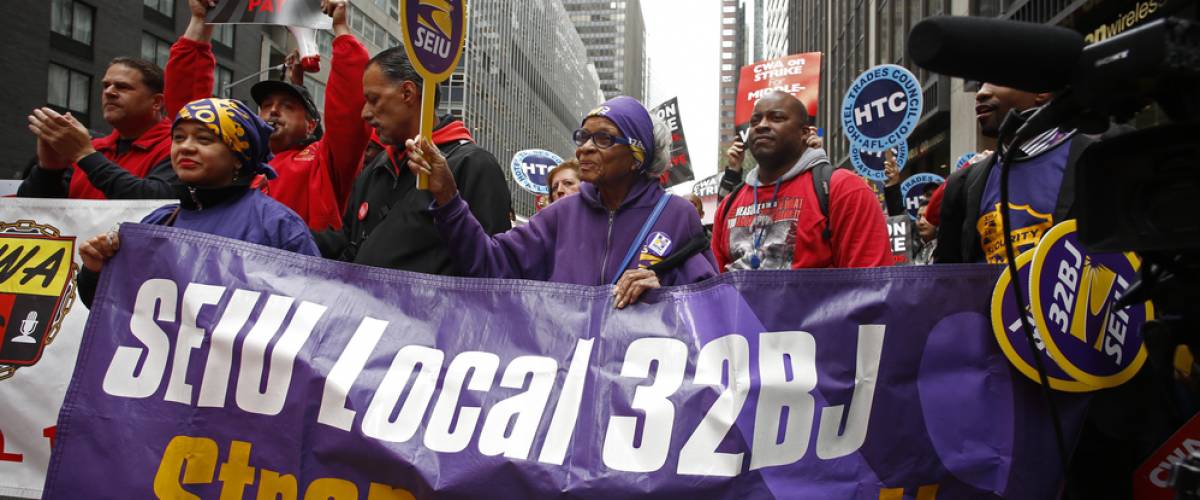22. Nurses

The top score goes to nurses.
Honesty and ethics rating: 85%
For the past 17 years, nurses have rated the highest in honesty and ethics, according to Gallup's occupational honesty poll. Americans have been fairly consistent about their approval of medical professionals, but nurses continually rate the highest, and by a wide margin.
Why such high ratings? Because, unlike what you see on TV, nurses do more than change bedpans and give sponge baths. They advocate for their patients' well-being, educate families on how to best help their loved ones recover and quite literally save lives.
America needs more nurses. If you’re one of those caring and compassionate individuals who can also stand 12-hour long shifts, you might consider a career in this field.
Registered nurses make a median annual salary of $71,730 and job outlook is predicted to grow 12% by 2028.
Meet Your Retirement Goals Effortlessly
The road to retirement may seem long, but with WiserAdvisor, you can find a trusted partner to guide you every step of the way
WiserAdvisor matches you with vetted financial advisors that offer personalized advice to help you to make the right choices, invest wisely, and secure the retirement you've always dreamed of. Start planning early, and get your retirement mapped out today.
Get Started21. Engineers

Honesty and ethics rating: 66%
Engineers are rigorously educated individuals who work in a wide variety of fields, like construction, infrastructure, agriculture and space exploration. They are responsible for the development, design, research, construction and testing of everything — from aircraft to medical devices to iPhones.
Clearly, they must be doing something right, since 66% of Americans say that they maintain high virtues of honesty and ethics. It could probably also be because engineers must commit to upholding a strict code of ethics before they get their Iron Ring. It makes sense because it’d be pretty unethical to build a shoddy bridge, building or airplane.
Engineering jobs are multidisciplinary and cover a wide range of fields. Job prospects are looking rosy for most types of engineers — for example, the field of industrial engineering is expected to grow 8% in the next 10 years, and those engineers make a median salary of $87,040 per year.
20. Medical doctors

Honesty and ethics rating: 65%
Medical doctors are physicians that treat illnesses and injuries, prescribe medications and diagnose ailments. These professionals must obtain a doctorate degree in medicine and complete two years of residency before being able to practice.
With that much knowledge and expertise under their belts, it's no wonder that 65% of Americans trust that their doctor maintains a high level of honesty and ethics.
Physicians are in high demand across the United States, and jobs in the medical field are expected to grow by at least 7% by 2028. Doctors must go through 12 years of schooling, but the payoff is worth it: they make a median salary of $208,000 per year.
Kiss Your Credit Card Debt Goodbye
Having a single loan to pay off makes it easier to manage your payments, and you can often get a better interest rate than what you might be paying on credit cards and car loans.
Fiona is an online marketplace offering personalized loan options based on your unique financial situation.
When you consolidate your debt with a personal loan, you can roll your payments into one monthly installment. Find a lower interest rate and pay down your debt faster today.
Get Started19. Pharmacists

Honesty and ethics rating: 64%
Pharmacists are responsible for filling a patient’s medical prescriptions and ensuring that patients are on their path to wellness. Americans have been fairly consistent in their assessment of pharmacists — 64% say that these professionals are honest and ethical.
The job outlook for pharmacists is less than ideal — there's anticipated to be 0% job growth in this field by 2028. Employment in retail pharmacies is expected to decline as online and mail-order prescriptions become more prevalent. The median salary for pharmacists is on par with most other medical professionals — they take home six figures, with the median falling at $126,120 per year.
18. Dentists

Honesty and ethics rating: 61%
The dentist’s office can be a scary place. You’re on your back, under blinding fluorescent lights, while your dentist digs around in your mouth using a dental scaler and a probe. And what's that buzzing sound? That can't be good...
Obviously, the transaction involves a fair bit of trust, which is why it's a relief that 61% of Americans trust that their dentists have “very high” or “high” ethical standards.
Dentists must obtain as much education as doctors and all of the hard work results in fair compensation. The average median salary for a dentist is $156,240.The field is expected to grow 7% by 2028.
17. Police officers

Honesty and ethics rating: 53%
Slightly more than half of Americans believe that the men and women in blue conduct themselves with honesty and ethics, but that number is down from 58% in 2016.
The drop in the numbers followed a series of controversies involving police officers throughout the U.S.
If it’s your dream to serve and protect your community, the field of police and detective work is expected to grow 5% in the next 10 years.
Officers must go through rigorous mental and physical trials at police academies. Some get their bachelor's degree in criminal justice, psychology or even computer science first, though it’s not required. The median salary for this profession is $63,380 per year.
16. College teachers

Honesty and ethics rating: 49%
College costs a fortune these days.
Tuition, room and board and associated fees are around $41,468 at a four-year private university. That’s per year. At those prices, people want to be sure that they’re receiving the highest quality education.
Luckily, professors are pulling in top marks. 49% of Americans say that college lecturers are honest and ethical.
Demand for qualified college teachers is expected to grow 11% by 2028, since having some form of higher education is now a requirement in many professions. The majority of employment growth will be in part-time positions at postsecondary institutions.
The median salary for postsecondary educators is $78,470.
15. Psychiatrists

Honesty and ethics rating: 43%
Psychiatrists are medical doctors that specialize in psychology and mental health. Patients who enlist the services of a psychiatrist trust that these professionals have a vested interest in their mental health and will put them on a path to wellness.
Unfortunately, the greater American public seems to be a bit more skeptical of the professionals on the opposite side of the fainting couch. Unlike the other medical professionals on this list, only 43% of Americans say that psychiatrists have "high" or "very high" standards of ethics and honesty.
Aspiring headshrinkers don't need to pack away their copy of Sigmund Freud's "The Interpretations of Dreams", though. The field is expected to grow 16% by 2028, and the median salary for psychiatrists is $220,380.
14. Chiropractors

Honesty and ethics rating: 41%
Chiropractors may be taken aback to learn that only four out of 10 Americans think they maintain high levels of honesty and ethics. It could be because of the high rates that chiropractors charge for their services, and that many of them incorporate New Age medicine into their practices.
Still, if you're among the 80% of Americans who suffer from spinal alignment issues, you'll be relieved to know that a chiropractor's got your back — at least in the credentials department. Chiropractors must obtain a Doctor of Chiropractic degree and state licensing before being able to practice.
The job market for this profession is expected to grow 7% by 2028. The median annual salary for the position is $71,410, but superstar chiros like Dr. Josh Axe can earn way more.
13. Clergy

Honesty and ethics rating: 40%
The people of the clergy might want to stand up and say, “Hallelujah!” because 40% of Americans find them honest and ethical — a 3% bump up from the previous year’s poll.
A member of the clergy, sometimes called a clergyman or clergywoman, is an ordained official in a religious organization. They are most commonly known as pastors, priests, ministers and imams.
According to Gallup, “views of their honesty and ethics have declined overall since 2006 when 58% of Americans said this group had high levels of these virtues,” but does not specify why there's been a drop in numbers.
If you think taking to the altar is your calling, consider that the field is expected to grow 6% by 2028 and the median salary for the profession is $48,990.
12. Journalists

Honesty and ethics rating: 28%
Although movies like The Post and Spotlight have tried, in recent years, to highlight the good work done by journalists, public perception continues to slide.
Trust in the honesty and ethics of journalists fell by five percentage points in the past year to 28%. Journalists hit a record low in 2016 with 23%, but that number rose to 33% by 2018.
Gallup reports that trust in mainstream media as a whole remains at a scant 41%.
The job forecast isn’t looking too great for wannabe journalists, either. Jobs in the field of print journalism are going extinct faster than you can say "printing press" — the field is expected to decline 10% in the next decade.
11. Bankers

Honesty and ethics rating: 28%
It looks like the stereotype of the “fat cat banker” still lives on, despite the fact that many people working on the ground level of banks don’t make nearly as much as investment bankers or CEOs.
But they do charge a lot of money for their services, which may be why so many Americans give them the side-eye when it comes to honesty and ethics.
Bankers are seen as having “high” or “very high” ethical standards by fewer than three out of 10 Americans in Gallup’s occupational honesty poll.
If you have your sights set on becoming a financial adviser, the field is expected to grow 4% by 2028. Financial advisers take home a median salary of $88,890.
It should be noted that not all financial advisers are fiduciaries, financial professionals who are held to an ethical and legal standard to act in their client's best interests.
10. Labor union leaders

Honesty and ethics rating: 24%
Labor union leaders are responsible for implementing measures that protect workers' rights, like health and safety initiatives and job protection.
It sounds like a noble profession, so, why the low ratings? Not only has union membership has fallen 10% since 1983, according to the BLS, less than half of Americans surveyed in a recent study believe that unions represent the interests of their entire membership, not just union leaders.
Gallup reports that 64% of Americans view labor unions favorably, versus 32% who don’t, but labor union leaders are held in pretty low favor by most Americans. Salaries for union leaders vary by their represented vocation, but as chief executives they're typically earning over $100,000.
9. Lawyers

Honesty and ethics rating: 22%
Lawyers get a bad rap in movies and on television for using less than scrupulous methods to win important victories for their clients. Take the movie "Liar Liar" starring Jim Carrey, where a lawyer has to go 24 hours without telling a single lie and finds it impossible to do so.
It may then come as no surprise that less than a quarter of Americans think that lawyers maintain high standards for honesty and ethics.
Still, lawyers work hard and many of them try to do the best by their clients. The job outlook for this field is expected to grow by 6% in the next 10 years. The median salary for a lawyer is $120,910 per year but can go much higher in metropolitan areas.
8. Business executives

Honesty and ethics rating: 20%
Only two out of 10 Americans say that business executives — the men and women at the C-suite level — maintain high standards of honesty and ethics. Although many top executives take home a median annual salary of $104,980, their actual total compensation can be huge. Billionaire CEOs like Elon Musk and Jeff Bezos, for example, hold salaries under six figures but receive millions in total compensation and incentives.
Still, the work of a top executive is a high pressure and comes with a ton of responsibilities, including late nights and lots of travel. Not to mention, it often takes at least a decade of work experience and some form of higher education — like a Master's of Business Administration — to rise to the top of the field. The profession is expected to grow 6% by 2028.
7. State governors

Honesty and ethics rating: 20%
State governors are elected officials who play a significant role in the executive branch of government. They are responsible for budgeting, appointing public officials and have considerable control over whether or not a piece of state legislation gets signed into law.
The perception of state governors rose a little bit — from 18% in 2018 to 20% in 2019 — but it’s still a pretty dismal score for elected officials. Why the low scores? Some reasons may be the divisive partisan politics and the feeling that governors don’t really care about the people — except when they're vying for their votes.
Salary rates differ by state, ranging from $70,000 (on the lower end) in Maine to a high of $210,000 for the governor of California.
6. Stockbrokers

Honesty and ethics rating: 14%
We’re long past The Wolf of Wall Street days, but the reputation that stockbrokers are shady characters still endures.
While the Securities and Exchange Commission has measures in place to crack down on securities fraud and Ponzi schemes, it appears that stockbrokers are still blacklisted among the American public. More than 80% of Americans say that these professionals have low standards of honesty and ethics.
While there are plenty of stockbrokers who are legitimately invested in their clients' financial success, risk-averse Americans are still hesitant to take a stockbroker's word for it.
Despite the stigma, the field is expected to grow 4% in the next eight years, and the median salary for stockbrokers is $64,120 per year.
5. Advertising professionals

Honesty and ethics rating: 13%
Sure, it's cool when “Mad Men” protagonist Don Draper comes up with an iconic marketing campaign, but in real life, the average American is a bit more wary of when someone is trying to sell them something.
That's why advertising professionals have some of the lowest scores when it comes to honesty and ethics. Only 13% of voters surveyed by Gallup say that this profession rates highly in honesty and ethics.
If you’ve got aspirations of becoming the next great advertising genius, don’t get discouraged. Advertising remains a fairly lucrative field with great job prospects — the field is expected to grow 8% by 2028 and the median salary is $132,620.
4. Insurance salespeople

Honesty and ethics rating: 13%
Have you had a bad experience with your insurance company? Maybe they didn’t honor your claim, or they found some tiny technicality that they’ll use to justify not paying you — and to top it all off, they kept you on hold for two hours while some robotic voice repeated the phrase "Your call is important to us" every five minutes.
Insurance salespeople are all about mitigating risks — but it looks like the odds are stacked against them. Only 13% of Americans find insurance salespeople to be ethical and honest individuals.
Insurance sales is a field that is expected to grow 10% by 2028, despite the low honesty and ethics ratings. Many clients purchase their insurance online nowadays, but insurance salespeople will still be needed to help walk them through the process and answer questions. The job pays a median salary of $50,600.
3. Senators

Honesty and ethics rating: 13%
There’s the old joke that goes, “How can you tell if a politician is lying? His or her lips are moving.” The stereotype of the crooked politician is as old as democracy itself, and American senators are no exception.
Senators, who work in the legislative branch of government, are seen as having high ethical standards by only 13% of the population. The divisive political discourse may be a contributing factor to this year’s low ratings, but according to the BLS, ratings among politicians tend to be low every year, regardless of who's in office.
Most senators take home a median salary of $174,000, but those in leadership, like the Senate Majority Whip, make a bit more.
2. Members of Congress

Honesty and ethics rating: 12%
The 2018 election saw record-breaking numbers for women in Congress, but that still wasn’t enough to lift the profession’s honesty and ethics rating.
Just over one-tenth of Americans feel that the profession maintains high honesty and ethical standards, and an overwhelming number of constituents believe that politicians put in a poor work performance.
Members of Congress have yet to score higher than a 30% honesty and ethics rating in the past 10 years. Again, the perception of a politician's honesty and ethics tends to rank on the lower end, regardless of party affiliation.
Members of Congress typically make a six-figure salary, but compensation can differ depending on responsibility and leadership.
1. Car salespeople

Honesty and ethics rating: 9%
The stereotype of the sleazy, lying car salesperson endures because only 9% of Americans think these professionals are honest and have high ethical standards.
It looks like lemon law horror stories continue to generate the stereotype of the smooth-talking car salesperson who will say just about anything to get you to part with your cash. They're viewed by Americans as sleazier than politicians and lawyers, which is definitely telling.
Automobile sales fall under the larger umbrella category of "Retail", which is a field that is expected to decline 2% by 2028. Since pay structure is based almost entirely on commission and bonuses, the pay scale varies widely.
Sponsored
Follow These Steps if you Want to Retire Early
Secure your financial future with a tailored plan to maximize investments, navigate taxes, and retire comfortably.
Zoe Financial is an online platform that can match you with a network of vetted fiduciary advisors who are evaluated based on their credentials, education, experience, and pricing. The best part? - there is no fee to find an advisor.







